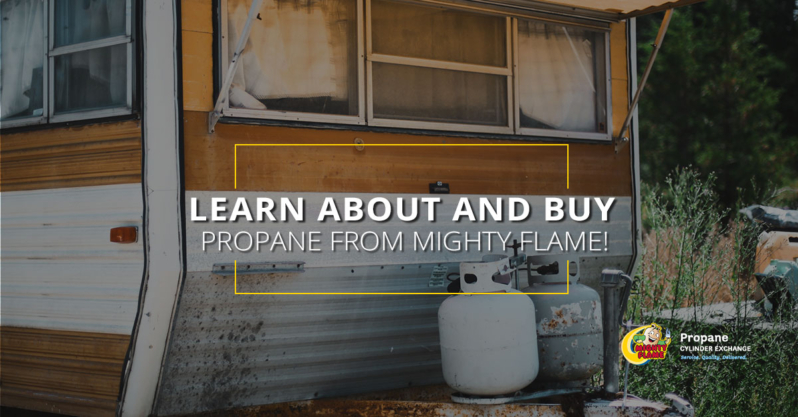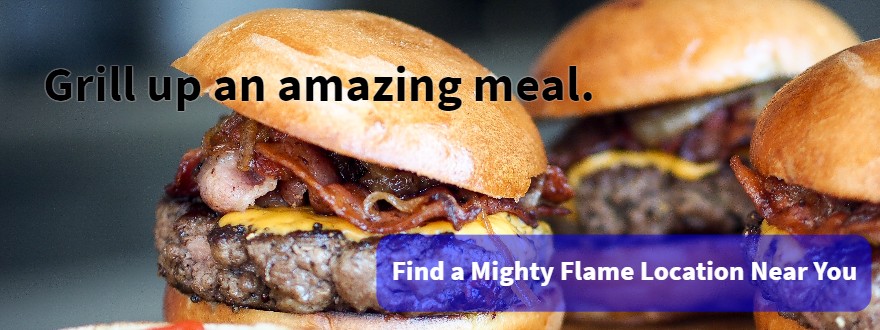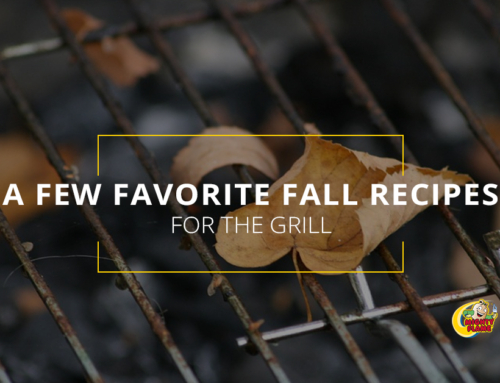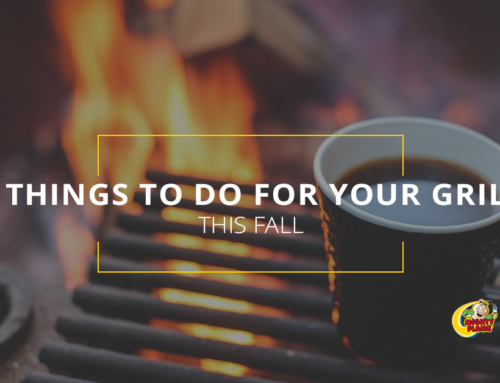This is essentially part two of an informal, two-part series where we at Mighty Flame Propane Cylinder Exchange list a wild number of facts about propane to entice our readers into learning more about this safe, clean, and affordable energy source. Whether for camping, grilling, keeping warm outdoors, or for some other purpose, there are many places you can buy a propane tank. This much is clear. But on the other hand, there is only one Mighty Flame. We make propane gas tank exchange incredibly simple and reliable. With thousands of locations all across the country (and even into Canada), you can shop with confidence because each of our tanks is safety-inspected and checked to ensure safety and quality. Not only are you getting top-notch propane for whatever purpose you’d like, but you are getting a company that cares about being reliable and solving our customers’ needs.
Luckily, we are the proactive sort, so we solve most any problem that might arise before it actually happens. Being around for over three-quarters of a century has that effect on a business — you become familiar with where things might go wrong. That’s why each and every one of our propane tanks is clean, freshly painted, precision-filled, leak-tested, fully inspected, and is designed with the Mighty Flame Tamper-Resistant Shrink Wrap Sleeve to guarantee the integrity and quality of every propane tank you get from Mighty Flame.
With our meticulous attention to detail, our considerable experience, and our remarkable convenience, we are right on the way to wherever you are headed! Whether it’s your backyard or a poolside or a campground or the neighbor’s house, it’s hard to have a good time without some well-prepared food and a bit of warmth. You’ll find that, more often than not, propane is behind both of these things.
With thousands of propane tank exchange locations in the United States and Canada, you’ll find that the locations we’ve selected are clean, along the way, and typically open 24-hours-a-day. So no matter what time of day or night it might be, choose the Flame that stays Mighty!
Did we just write that? You bet we did.
Spotlight: Propane Safety
Before we get to our promised blog topic of the day, which is providing our readers with a few more interesting, if not random, facts about propane, we’d like to write a few words about propane safety, with specific regards to hurricanes and how to keep your family safe during times of emergency.
While it’s easy to relax living in Upstate New York combined with the fact that hurricane season is technically over, it doesn’t mean that we can’t get unexpectedly affected by inclement weather. We at Mighty Flame have a few safety tips to offer our readers so that they can be well-informed as to how to best keep them and their families safe in case extreme weather or other emergency issues arise.
Let’s start with some in-case-of-hurricane advice. If there is a hurricane approaching, the first thing you’ll be thinking about is whether you need to evacuate your home or not. Of course, it’s a solid idea to listen to the guidance of your local news and authorities for instructions about leaving. But whether you decide to leave or not, it’s vital that you shut off your gas. While we recommend picking up an extra propane tank or two for the downtime after the storm (power might not be restored for weeks), never store propane tanks indoors. Keep your food, cooking utensils, and food in a safe place.
After the hurricane has passed, there will be a serious mess on your hands, in all likelihood. Here are a few tips for what you should and shouldn’t do in the event of a hurricane cleanup.
- Never use your oven or burner to try to heat an area. Again, it’s a good idea to have an extra propane tank or two on-hand, in case of emergency so that you don’t have to use an oven or your range to keep warm!
- Don’t store propane cylinders in an enclosed area. That includes garages, sheds, or even tents. These places can get inordinately hot.
- Don’t ever turn on a light switch or try to use any source of power while standing in water. You might have learned this when you were five years old, but we don’t care, it’s still true. When you are in a scattered state of mind after a hurricane, it’s easy to forget the most basic of things. Don’t forget about this one!
- Inspect your propane appliances for damage and water affecting them. It is completely safe to do so, but if the appliances have electric components and have been in contact with water, it might lead to a fire hazard, so it’s important to prioritize this issue.
- Take a good hard look at your flue pipes, vent connectors, and chimneys in case of blockage or debris that might be clogging up key systems.
- It’s vital that you do not use outdoor propane appliances in an indoor setting, or even an enclosed one. You might get CO poisoning, which can lead to death. Portable generators, portable heaters, and grills are almost always intended for outdoor use. So keep that in mind!
- If you find that your propane appliances, vehicles, or equipment have been underwater (or they have some degree of damage), make sure that you schedule an appointment with a qualified service technician to get a thorough inspection of all of your equipment and propane-based systems. Get a leak test on your system and have the technician relight your pilot light, if you happened to have turned it off. Make sure you do not turn on any propane appliances until they have been inspected by a propane professional!
A Few Notable Facts About Propane
We are certifiably propane-obsessed here at Mighty Flame, and as such, we’d like to end today’s blog post the same way we did with our previous post — by providing our readers with a healthy dose of facts about propane that they can impress their friends with at their next social event. We recommend shouting any one of these propane facts during dinner, with your mouth full of food, interrupting all other conversations that were going on. If grace is said before the meal, perhaps take a big bite during the first half of the prayer and then start your proclamation once you feel the grace is winding down. Or, you could keep these scintillating propane facts to yourself…but where is the fun in that?
- Let’s take it way, way back for our first propane fact. Did you know that even ancient civilizations recognized the value of petroleum products? There are examples of people using petroleum as a part of their instrumentation as far back as 5,000 years ago. Ancient Mesopotamians (modern-day Iraq) used petroleum-derived compounds that resembled tar for masonry, bricks, and even adhesives for jewelry. Around the time B.C.E. changed to C.E., a group of Arabian researched discovered that one of the most foundational principles of petroleum chemistry; it can be separated into different fractions based on boiling points, with each fraction having its own properties.
- Most knowledgeable folks consider 1859 as the beginning of the modern era of refining. When the Seneca Oil Company drilled the first oil well in Pennsylvania, the first oil well on record produced some 300 tons of oil in its first 12 months of existence. Propane was discovered to be distinguishable from petroleum in 1910, by Dr. Walter Snelling, when he learned that a significant portion of liquid gasoline was comprised of butane, propane, and other kinds of hydrocarbons. Dr. Snelling was then able to segment these compositions so that we could more efficiently use them for a variety of applications.
- While propane remains an efficient, clean, and safe source of energy, it also has a high octane rating, which means it’s an ideal choice for spark-ignited internal combustion engines. However, of all the energy used in the United States, only two percent of it is propane. Two percent of that percentage is used by propane-fueled vehicles. In our opinion, this is far too small of a figure, considering that propane is environmentally-friendly and is proven to be much less harmful (from a wear-and-tear perspective) on the engines of vehicles than gasoline.
Consider Mighty Flame!
We hope you’ve enjoyed this post as much as we enjoyed writing it! We can never get enough propane-chatter here at Mighty Flame, so be sure to reach out to us if you have any questions. Otherwise, find the nearest Mighty Flame Propane Tank Exchange location near you!







